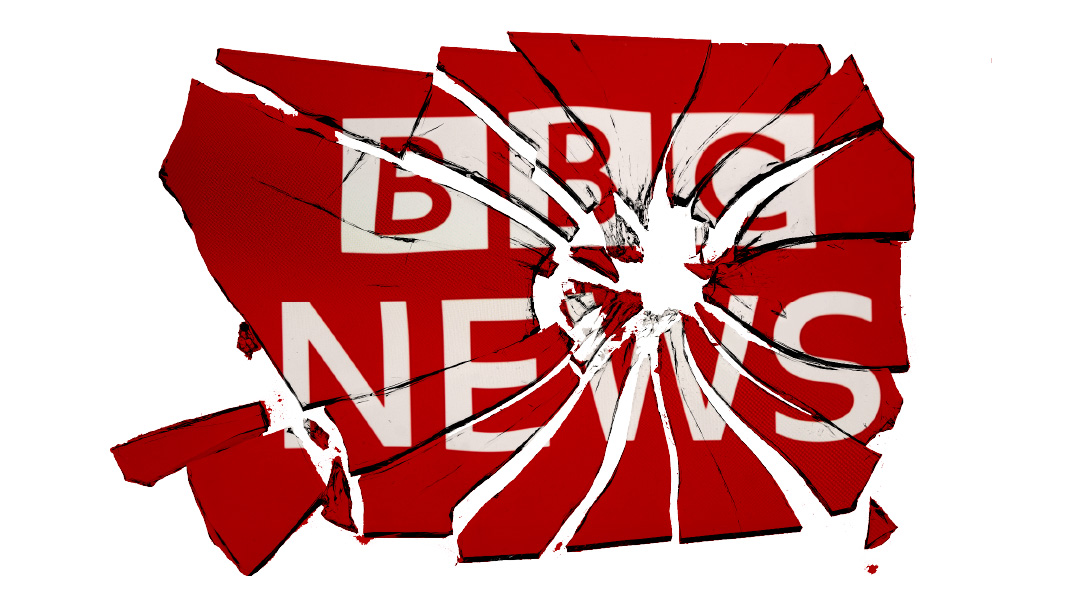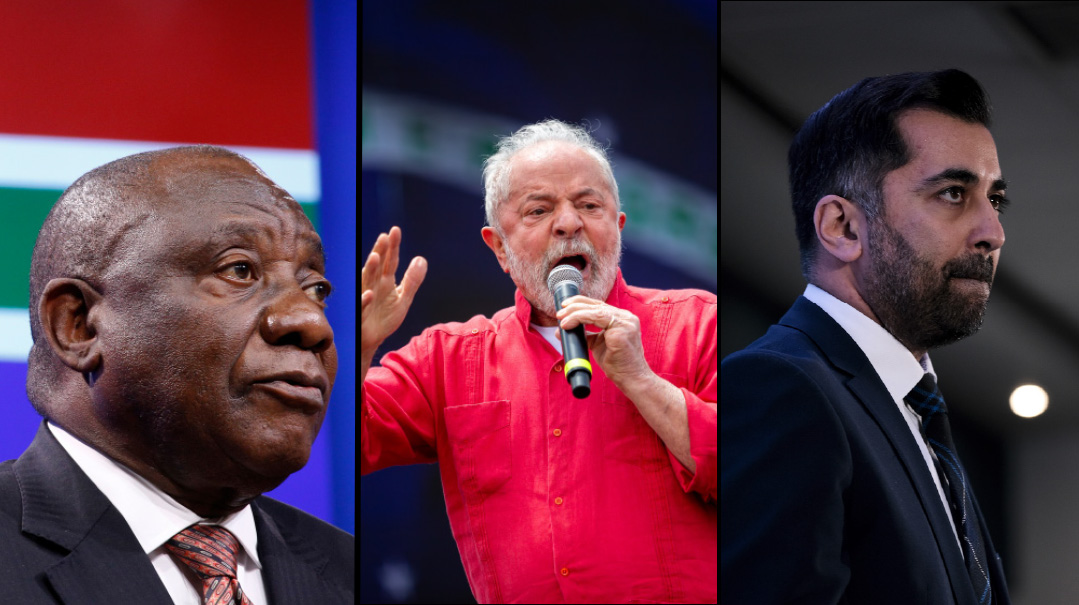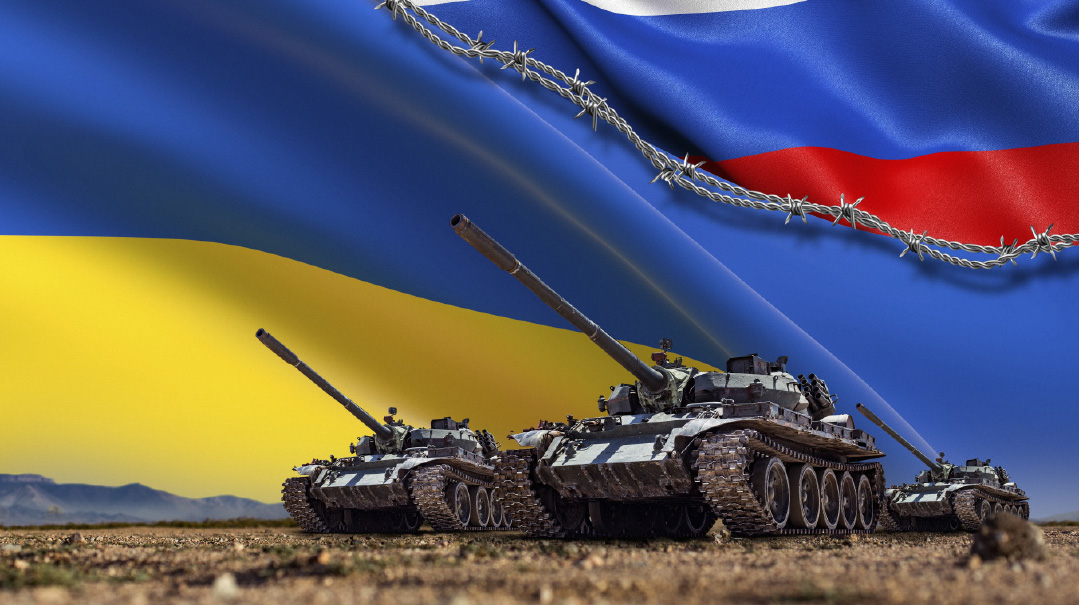Where Are the BBC’s Red Lines?

We now know something about BBC employment policies: You can utter a borderline blood libel and keep your job

Thanks to BBC presenter Anjana Gadgil, we now know something important about the broadcaster’s employment policies: You can utter a borderline blood libel and keep your job.
That insight came in an interview with Naftali Bennett during last week’s IDF operation in Jenin, when Gadgil accused Israelis forces of happily killing children, and escaped with nothing more than a slap on the wrist.
“The Israeli military are calling this a military operation, but we know that young people are being killed, four of them under 18. Is that really what the military set out to do, to kill people between the ages of 16 and 18?” Gadgil asked.
Dumbfounded, the normally fluent Bennett was left to splutter that whatever their age, the gunmen were terrorists, to which the presenter responded: “Terrorists — but children. The Israeli forces are happy to kill children.”
The exchange predictably went viral, and the BBC was forced to issue a non-apology. Her words covered a “legitimate subject,” although they weren’t “phrased well,” the broadcaster said.
Gadgil’s odious words and the BBC’s equally repellent response should not be allowed to stand.
First, because the line of questioning was, in fact, totally illegitimate. Israel has the same duty to defend its citizens from terror as any other country. The fact that Palestinian terrorists learn to fire an assault rifle before they can legally drive doesn’t make them any less lethal. They aren’t normal teens, and should be treated as the killers they are.
Second, the episode once again reveals the double standards that the BBC applies to Israel.
Especially in the context of the Jewish state, the accusations are little short of medieval blood-libel imagery. There is simply no way that the hackneyed “mis-spoken” excuse covers an accusation of joyful child murder.
We all know a slip of the tongue when we hear it; it’s immediately accompanied by a correction from the speaker him- or herself — not sometime later via her employer.
Gadgil’s breathtaking accusations seem to stem from a bigoted view of Israel that should have automatically disqualified her from touching anything to do with the conflict.
What’s instructive is that in the broader media world, careers have ended over far less severe missteps. Take, for example, the recent firing of CNN’s longtime anchor Don Lemon for what were perceived as misogynistic comments.
And yet — wonder of wonders! — barely veiled bigotry about Israel is nothing like as fatal; with a decorous tut-tut, the whole thing can be quickly swept under the carpet, and Anjana Gadgil gets to keep her job.
In the BBC’s case, the “Israel exception” seems to extend to anti-Semitism as well. Last Chanukah, a bus carrying Jewish teens was attacked in central London by people making Nazi salutes. But in the BBC report of the event, the victims became the perpetrators on the basis of an audio that the reporter said contained anti-Muslim slurs.
Forensic analysis commissioned by the Board of Deputies. an official body representing Britain’s Jews, quickly proved that the alleged “slurs” were Hebrew for “Tikra l’mishehu, zeh dachuf!” — a cry of alarm.
Ofcom, an independent media watchdog, said that the BBC was guilty of “serious editorial misjudgment” in the case. Yet no apology was forthcoming; the broadcaster merely said that the alleged slur was “disputed.”
Again, had that type of bungled and hostile reporting been aimed at another minority community, does anyone doubt that heads would have rolled?
In a world of cancel culture and censoriousness, media figures are ultra-careful about what they say about protected groups — with the notable exception of Israelis and Jews.
Which begs the question: If smears over child murder aren’t grounds for dismissal, where does the BBC draw the line?
Fear in France
For ten days after French police killed Nahel Merzouk, a 17-year-old of North African descent who was attempting to flee a traffic stop for unsafe driving, France burned, and its Jewish community watched nervously.
Over nights of riots that spread to neighboring Belgium and Switzerland, police stations, schools, and public libraries were torched, there was widespread looting, and hundreds were arrested as the police deployed 45,000 officers to quell the unrest.
“The protests weren’t aimed at Jews, rather at state symbols,” says Rabbi Moche Lewin, the country’s deputy chief rabbi. “But we know that where there’s an anti-establishment feeling, Jews can become a target, so we feel on edge.”
Over the tense period, a few shuls in areas close to the riots in Paris’s economically deprived suburbs indeed stayed closed, although no additional measures were deployed, given the already extensive security measures in place.
The sudden outburst of violence caught the country by surprise. On the afternoon before they broke out — even after the teen’s death — Rabbi Lewin had been at an interfaith event in a mosque that was at the center of a previous wave of protest, in 2005.
“The government now understands that it needs to bring back community policing in these restive suburbs, and give the residents there economic opportunities,” says Rabbi Lewin. “As for the Jewish community, we know that nothing has been solved, and it could happen again.”
History Desk
In wartime, narratives matter. Leaders who tell the right story, inspire their people to sacrifice, and can build enduring alliances.
The latter is the case in a new finding that emerged last week, of World War II–era Hurricane fighter planes, which were unearthed at an airfield outside Kyiv. The Battle of Britain icons were supplied by Churchill’s government to the Soviets after Hitler’s 1941 invasion of the USSR.
Beyond the actual discovery of the Hurricanes, what’s interesting is the way that they’ve been drafted into the historical dimension of the ongoing Russia-Ukraine clash.
“The Hurricanes are a symbol of British assistance during the years of the Second World War, just as we are very appreciative of British assistance nowadays,” said Valerii Romanenko of Ukraine’s National Aviation Museum. “The UK is one of the largest suppliers of military equipment to our country now.”
While that is a convenient parallel for Ukrainian PR, the reality is that the narrative isn’t so clear. It was the USSR — whose main successor state is Russia — that received and operated the equipment. Ukraine itself has an ambiguous relationship with the Soviet Union, which, under Stalin, inflicted the Holodomor, a systematic program to starve Ukrainians of any resistance to the USSR’s dominance.
BIG Boss
The threat by Yehudah and Roni Naftali, the owners of BIG, an Israeli mall chain, to join the high-tech sector in shuttering to protest the passage of the first stage of judicial reform this week, highlighted an overlooked aspect of the battle over the reforms: economics.
The split between left and right, secular-liberal and religious-traditional can also be thought of as a function of wealth. In broad terms, the protests are about the boss class versus the schleppers; pitting those doing well from the high-tech economy against Israel’s long tail, the millions struggling in the left-behind economy.
As Gadi Taub, in a excellent Tablet essay, says, the battle “is a local manifestation of the same political tensions we see in other Western democracies. As elsewhere, progressive elites are outnumbered, and so attempt to subvert democracy while claiming to defend it, using courts, international institutions, and the administrative state to advance their agendas.”
(Originally featured in Mishpacha, Issue 969)
Oops! We could not locate your form.







